





Are You an Eco-Friendly Family Looking for a Pesticide Free Way of Growing Food in Your Urban Area?
Growing with Aquaponics is free from pesticides and fungicides.
For a holistic overview of aquaponics, watch this 5 min video
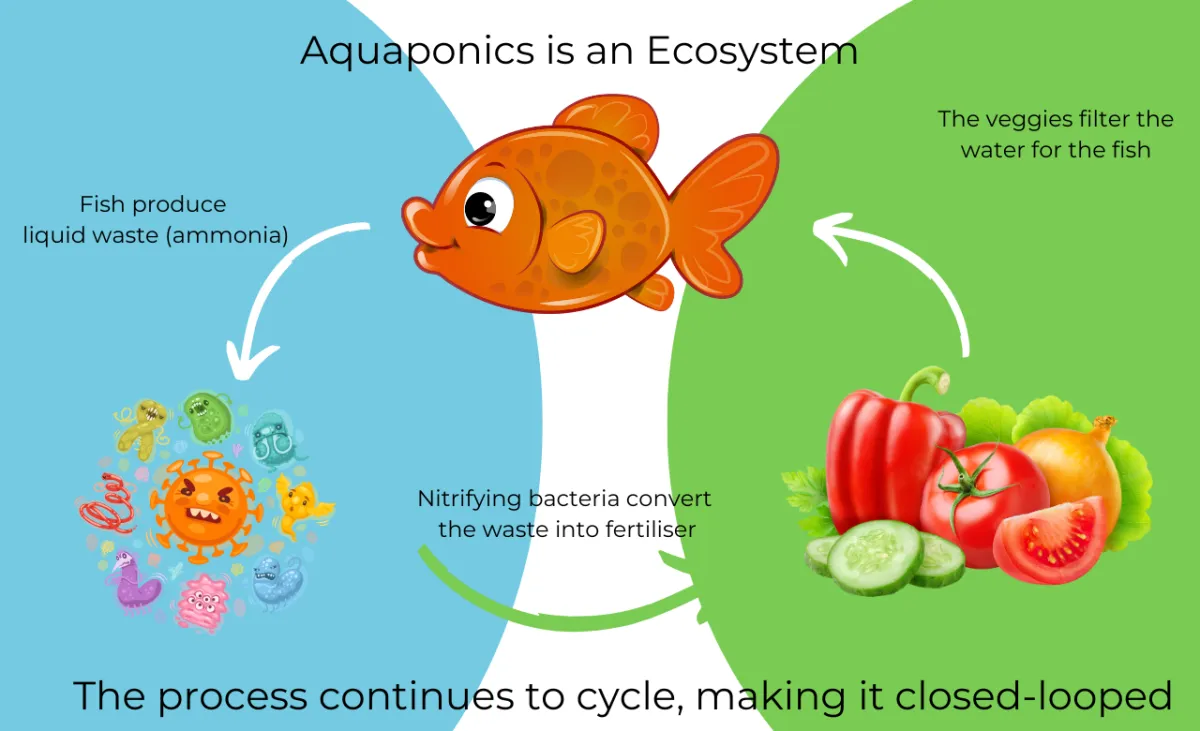
Aquaponics is....
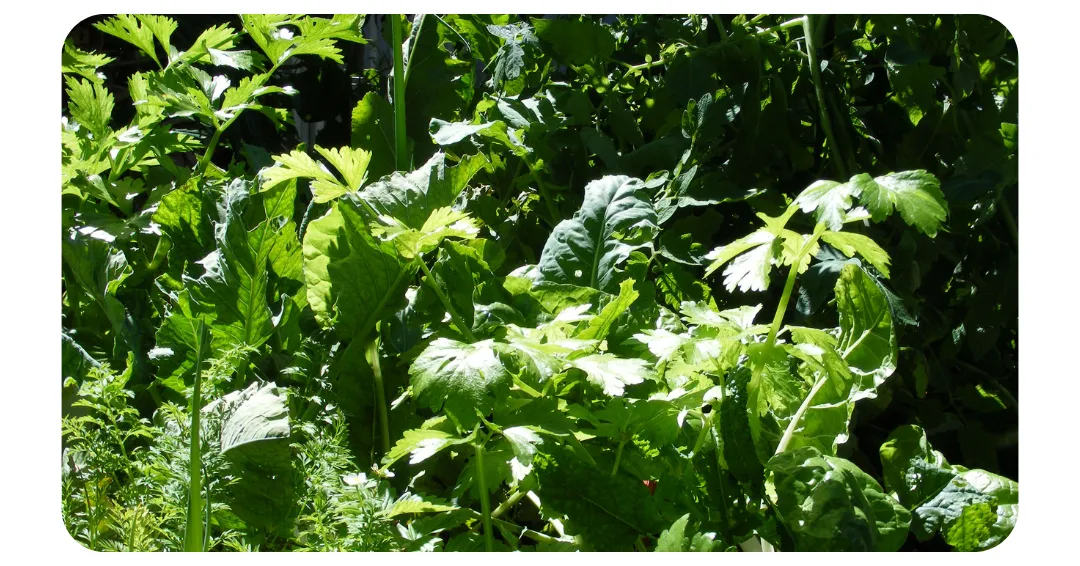
Aquaponics is a sustainable, living, freshwater ecosystem in a man-made (or woman-made) structure where we grow healthy food for our families in any space.
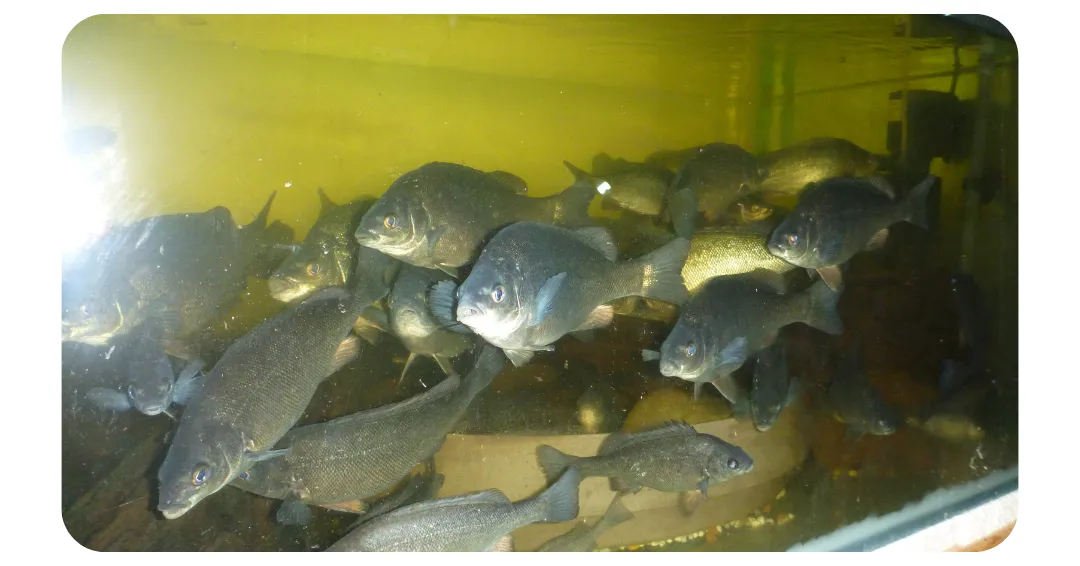
The ecosystem involves fish (pets or edible fish) that produce fertiliser for the veggies, and the veggies filter the water for the fish and of course nitrifying bacteria that make this whole ecosystem work, just like in nature.
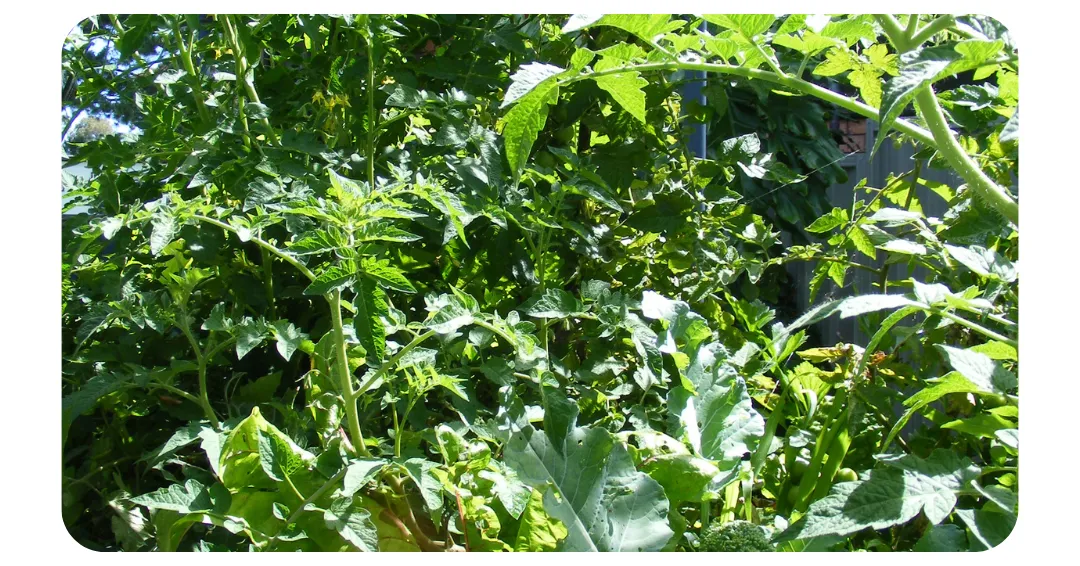
This all happens within our man-made ecosystem in a natural and harmonious way that is great for the environment, as well as your back pocket.
Aquaponics is a sustainable, living, freshwater ecosystem in a man-made (or woman-made) structure where we grow healthy food for our families in any space.

The ecosystem involves fish (pets or edible fish) that produce fertiliser for the veggies, and the veggies filter the water for the fish and of course nitrifying bacteria that make this whole ecosystem work, just like in nature.

This all happens within our man-made ecosystem in a natural and harmonious way that is great for the environment, as well as your back pocket.

Here's Why Aquaponics Can Work For You:
Sustainably grow healthy veggies with ease
Uses 10x less water than soil gardens
Grow veggies 4x faster than soil gardens
Bursting with flavour
No pesticides or wax affecting your health. Just real food continuous crop, no waiting a month every time for seeds to grow
Organic food at your fingertips, no needing to travel to various stores for healthy food.
Minimal maintenance (just 5 mins a day!)
Easy to build and maintain
Fresh healthy veg at your fingertips - No need to go to store
Fast, delicious, healthy food at your fingertips
Protect the environment
Reduce your grocery bill by having fresh, healthy food constantly
The joy of having fish to relax and watch
The Perfect Solution to Start a Herb or Vegetable Garden Easily
Here Are Some of the Veggies You Can Grow in Aquaponics

Aquaponics Helps You Grow Healthy Food Affordably
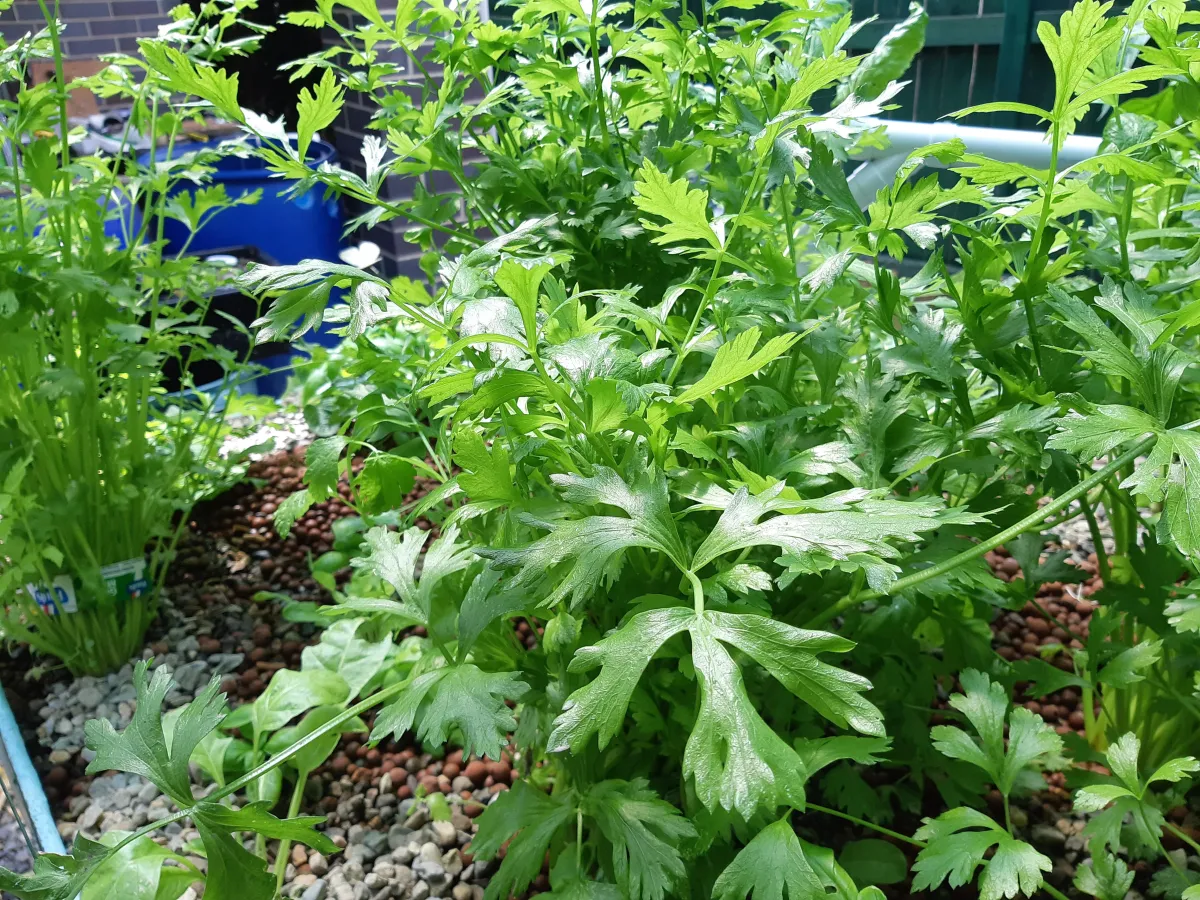
You take it with you when you move.
Starting small gives you the chance to 'kick the tyres' without a huge investment.
Limited ongoing costs (size dependent)
Indoor or Outdoor growing
No bending, digging or weeding
No waste
Uses less water
Some Free Resources to Get You Started

Quick Start Guide
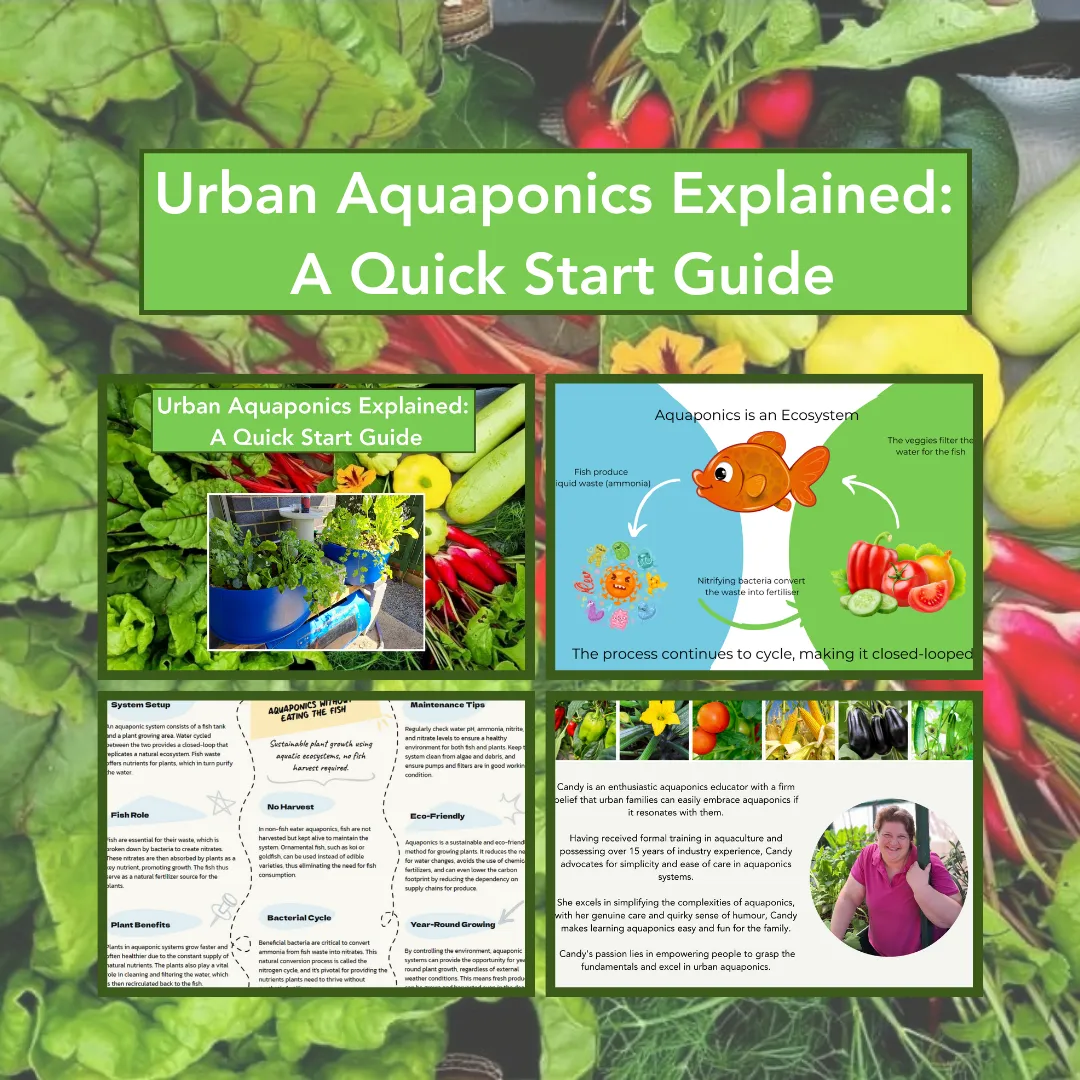
Get a quick start into urban aquaponics with our short PDF guide!
Discover visually what home aquaponics entails and grasp key points on how it can benefit urban families.
Perfect for those unsure if aquaponics is the right fit for their lifestyle, get the visual to see.

Urban Aquaponics
E-Book
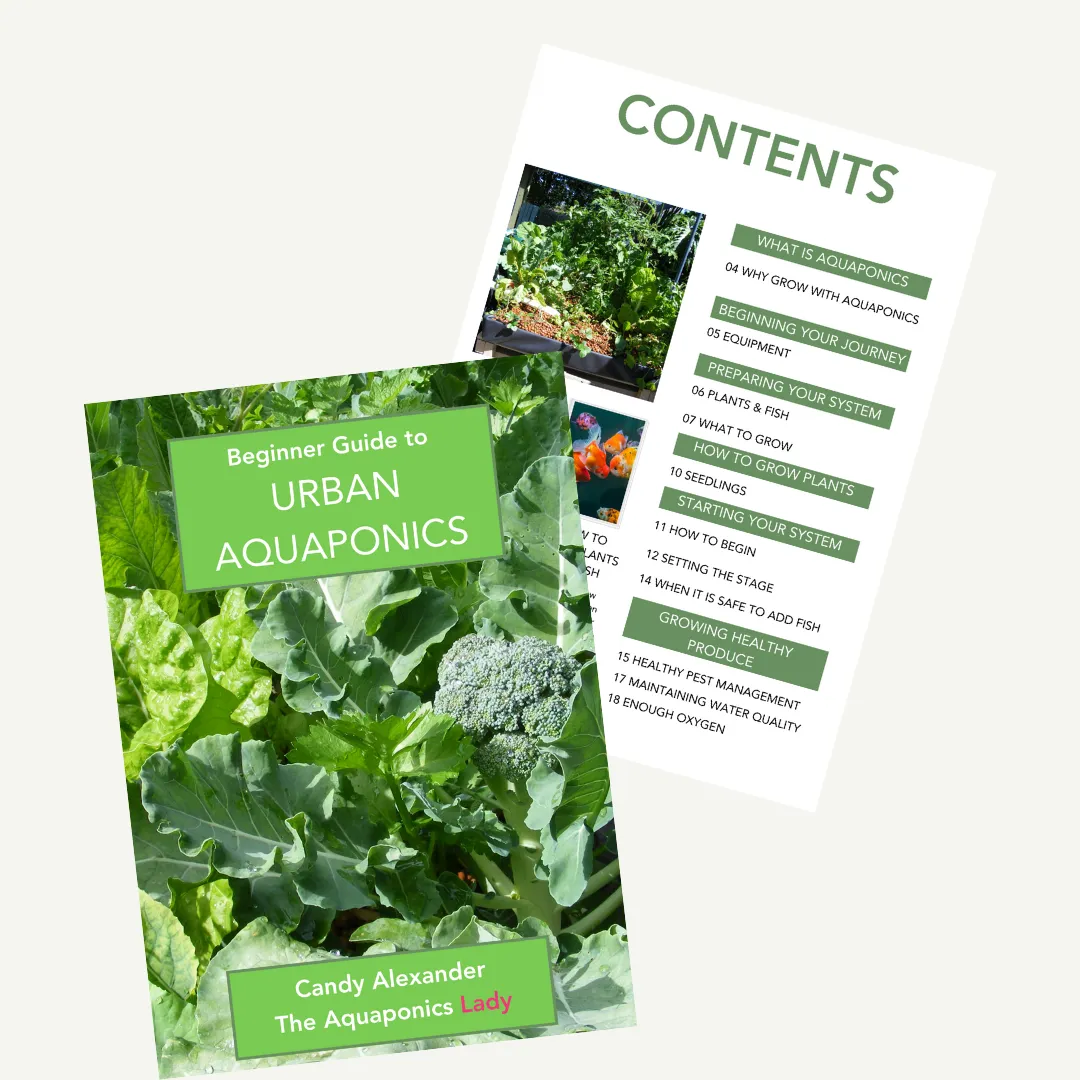
Get the basics of aquaponics.
Explore urban aquaponics in our concise 22-page eBook, perfect for families curious about sustainable living.
Discover how elements align and get practical tips for a successful home aquaponics system, ideal for beginners and enthusiasts alike.
Learn how aquaponics works, so you can start your own herb garden cheaply and easily.

Free Online Aquaponics Essentials Course
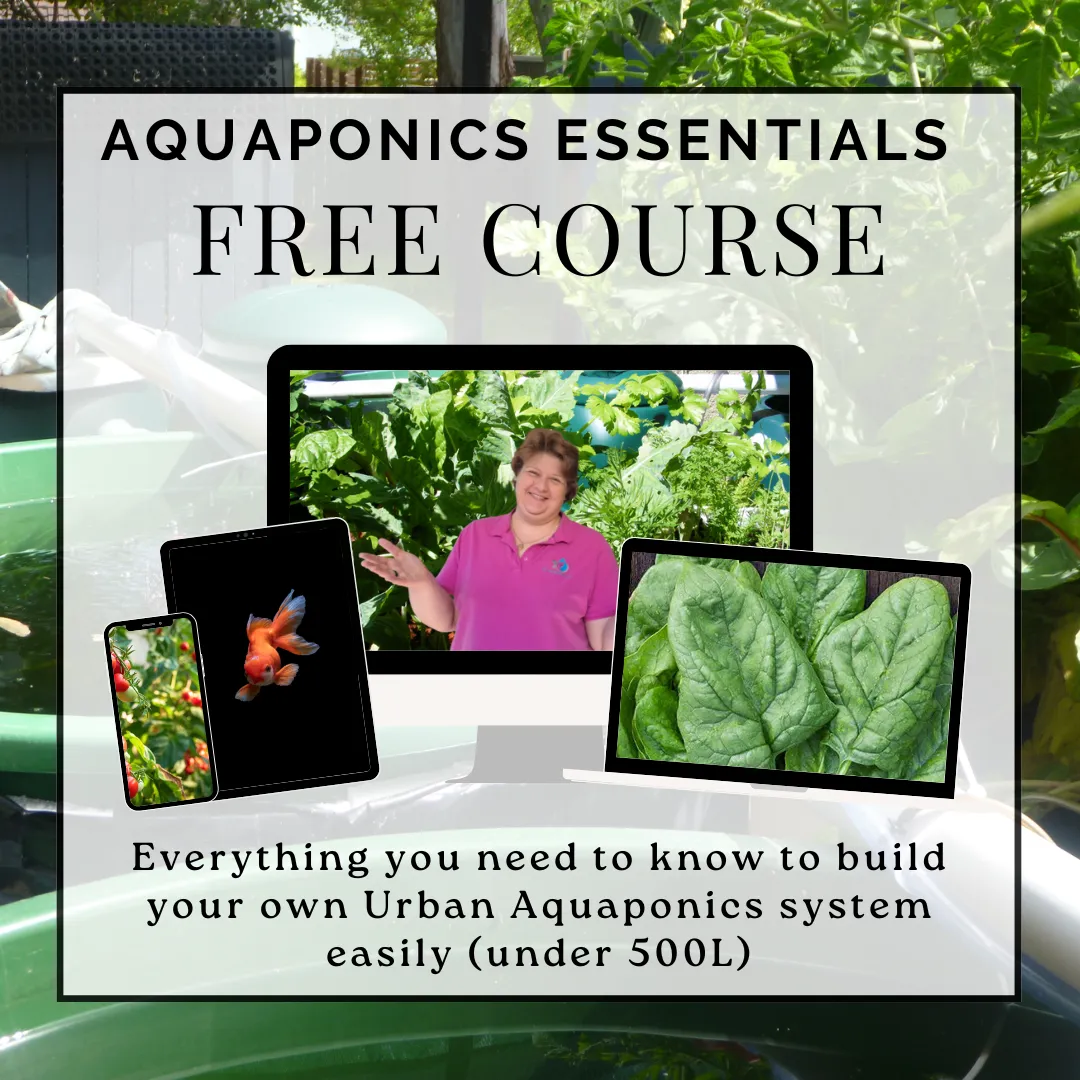
Ready to learn some basics about aquaponics
Learn how the elements of aquaponics come together harmoniously in our video course designed for urban women.
From basic aquaponic designs to pros and cons, we guide you through the essentials. We help you understand where to start, the parts you'll need, effective filtration methods, and the art of creating a thriving ecosystem with nitrifying bacteria.
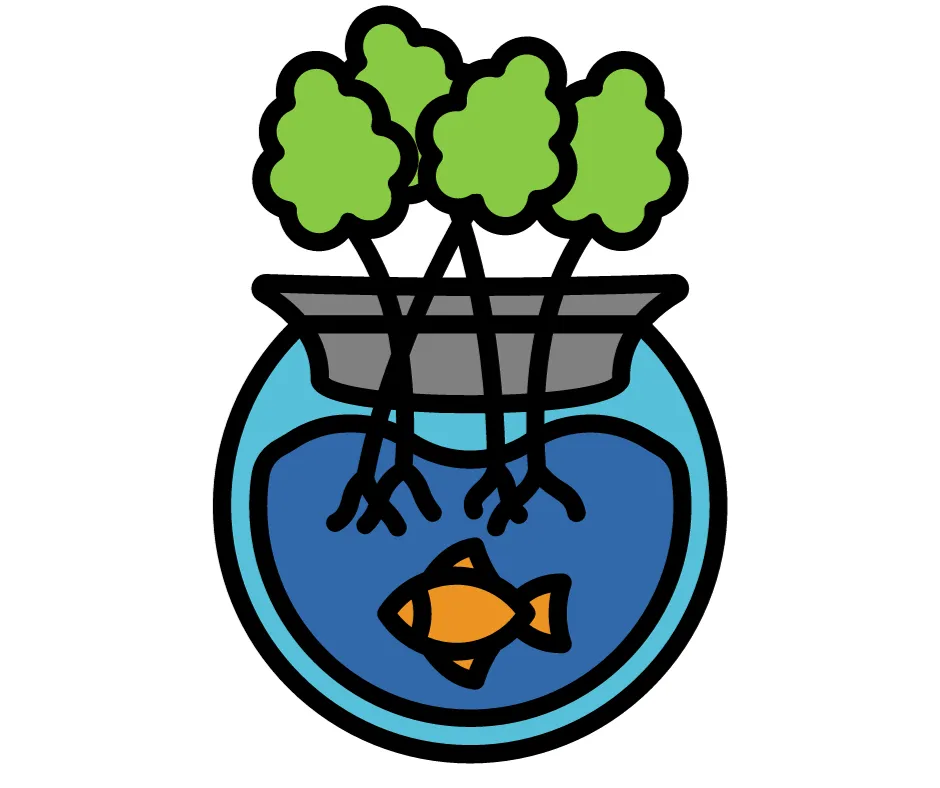
Fortnightly E-Newsletter

Dive into sustainable living with 'Splashy Sustainability,' our fortnightly e-newsletter!
Join our email list to receive updates on blog posts featuring general gardening tips, insightful aquaponics advice, and highlighted videos from our YouTube channel to help you cultivate a thriving urban garden oasis.
Everything we do in life is a learned skill, we are not born knowing how to garden, knowing how to have food security easily.
Online Aquaponics Courses for You
Something for Everyone
Do you need a Step-by-Step Design & Blueprint Guiding Your Aquaponics Build and Care?
Simple Courtyard
Aquaponics
Then this home aquaponics course is for you. Step-by-step instructions to build a specific design, as well as the information and support you need to know what fish to get, how to look after your system. Everything you need to know, in a simple and guided way.
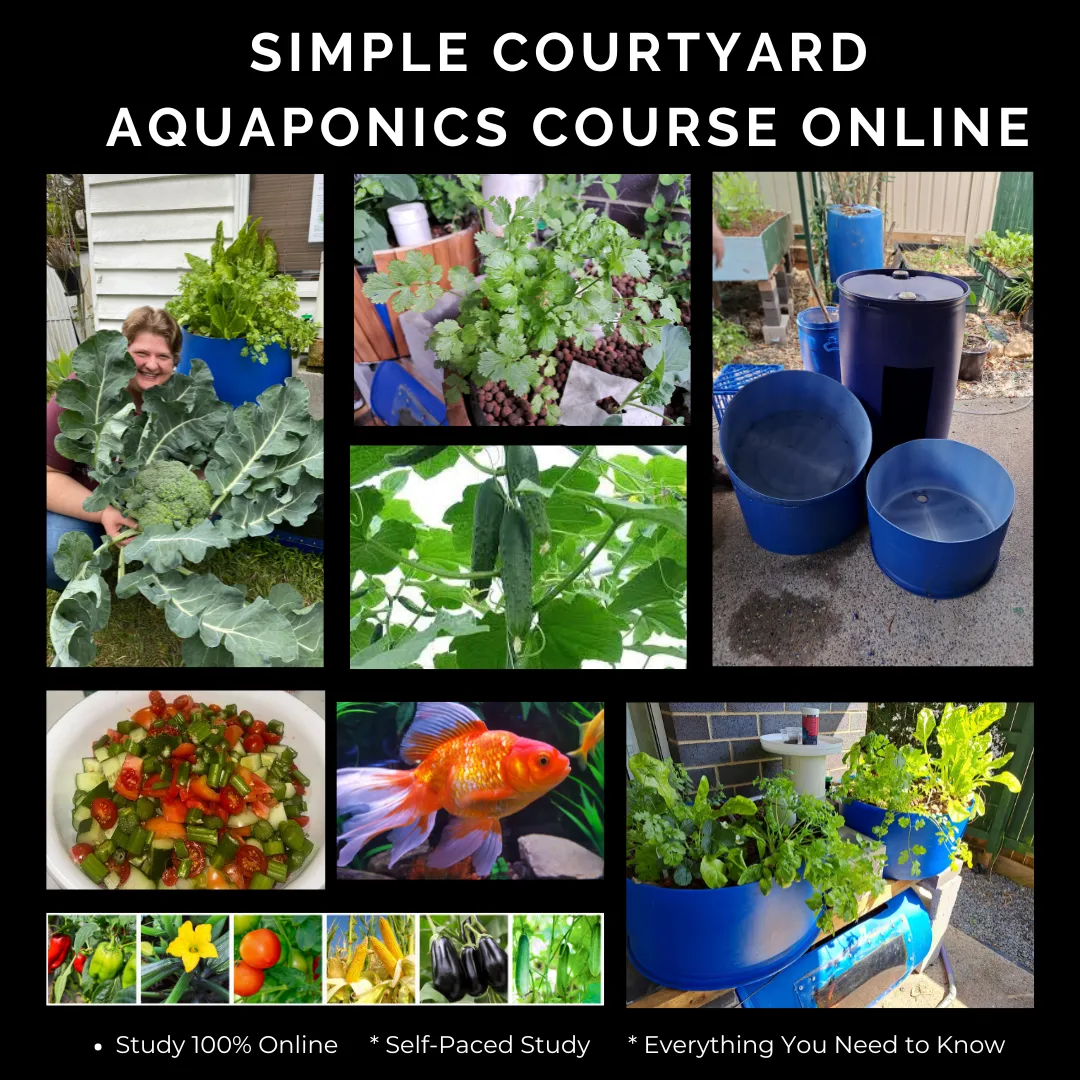
Your A-Z, step-by-step blueprint to build and look after your own aquaponics system.
Getting the maximum amount of veggies growing in your small space.
Using less water to grow healthy, luscious veggies that you didn't think was possible.
Knowing what is on, or not on your food.
Having the convenience of walking out into your courtyard, and getting food for dinner.
Saving money by growing what you love to eat, when you didn't think you'd be able to.
Do you need the fundamentals of aquaponics, then you can set of an DIY your own system?
Urban Aquaponics
This urban aquaponics course is for you. We show you three different aquaponics builds, including an aeroponics tower. We cover the fundamentals on what you need and how you need it. You're then ready to go off and DIY your own home aquaponics system.
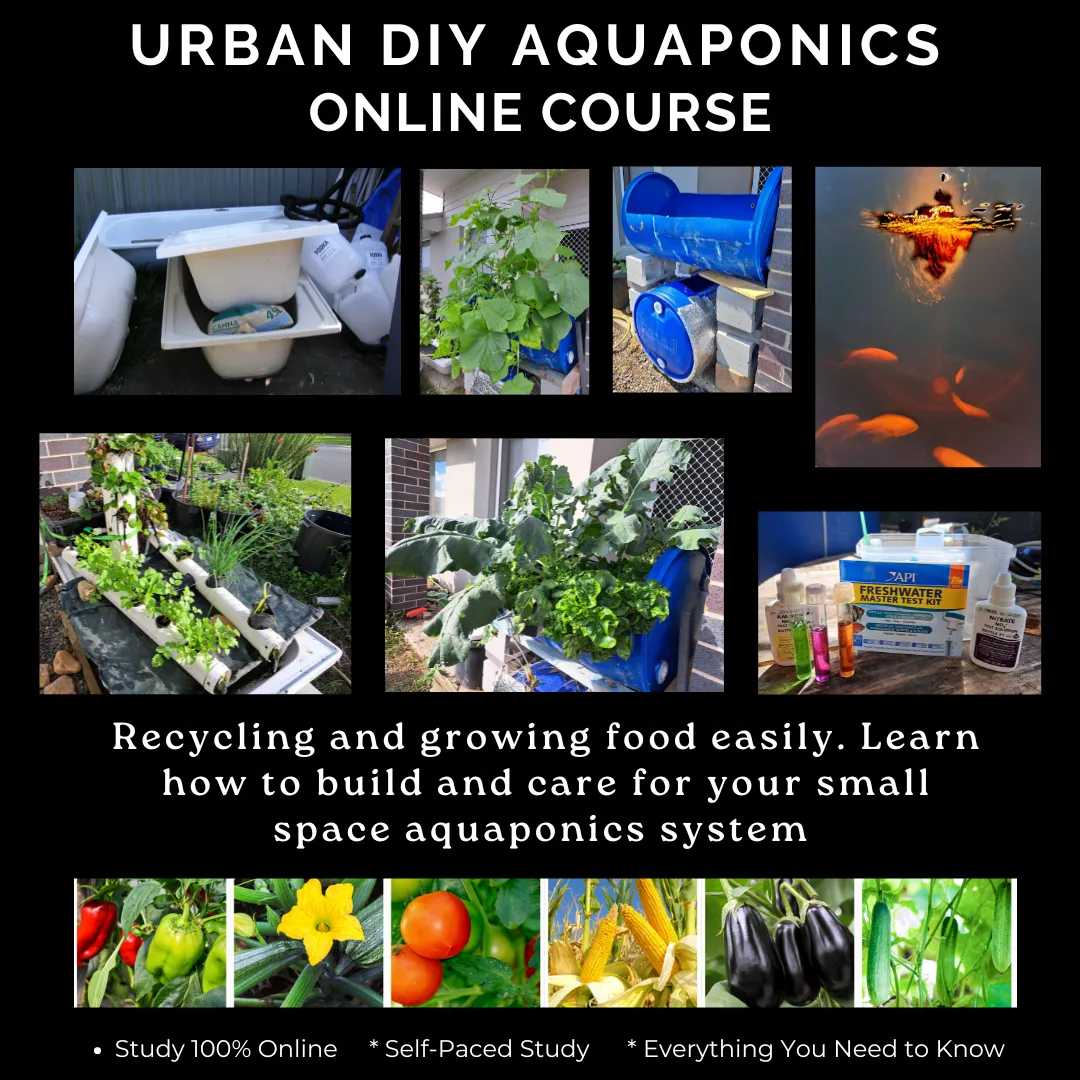
Teaching you the fundamentals in a structured, and simple to understand way.
Showing you how to make the most of materials that you can scavenge, or have in your garage.
Showing you how to help the environment, while growing more food for you family, sustainably.
Teaching your kids how to grow healthy food.
Building an aquaponics system to your needs.
Saving money by starting small, and learning how it works, not making mistakes on a bigger system.
Learn how to use recycled materials to build your own aquaponics system.
A few words from Candy, The Aquaponics Lady...
"From my Welfare and Youth Work, I've been passionate about helping people to live the best life they could.
Then professionally trained within aquaculture, and commercial aquaponics my passion turned to helping all people have access to healthy food.
As someone with autism, PTSD and Anxiety disorders, I know the challenges that arise in trying to learn new things, and the desire to achieve your goals.
Now, my passion is to break it all down and give you the simple, easiest version to start your food security and aquaponics journey ~ and to help you build your capacity to do this. "

What others have said



Copyright 2023 | Candy The Aquaponics Lady | All Rights Reserved Email: [email protected] Queensland, Australia
Youtube
Facebook
Instagram
LinkedIn
TikTok